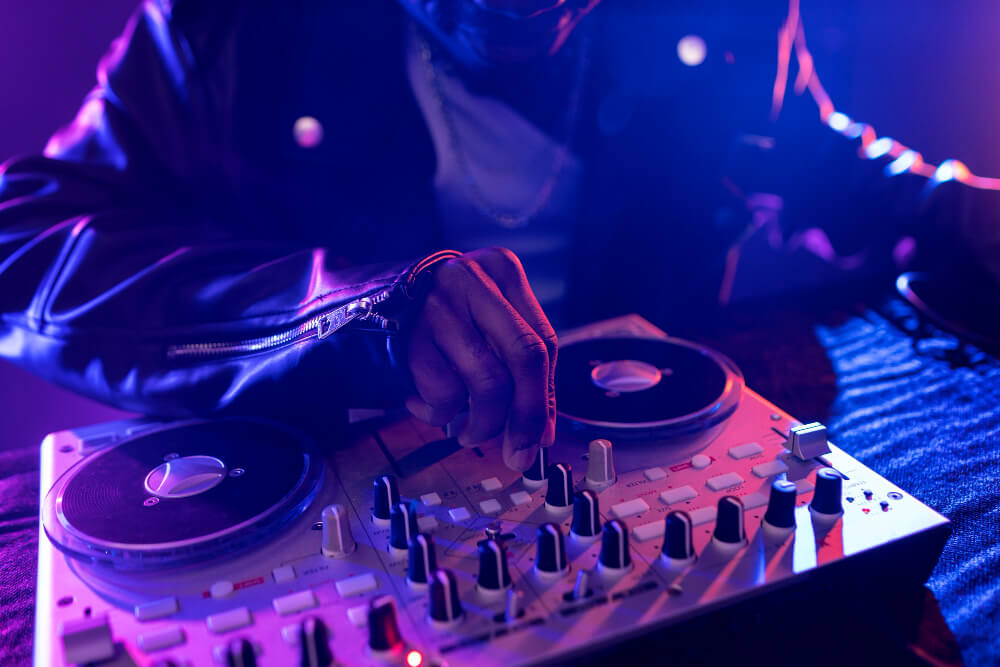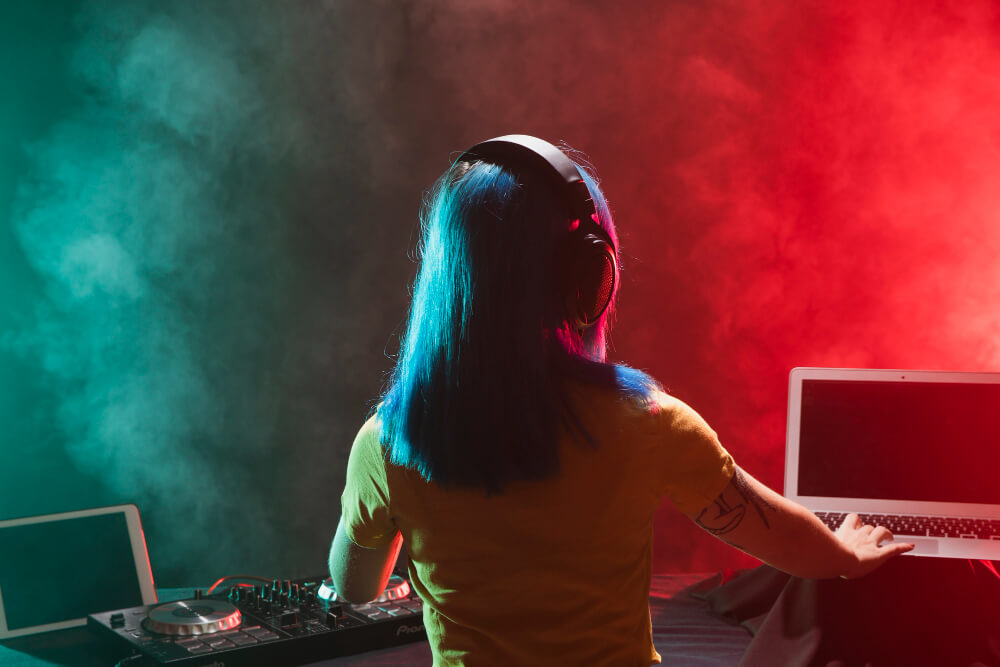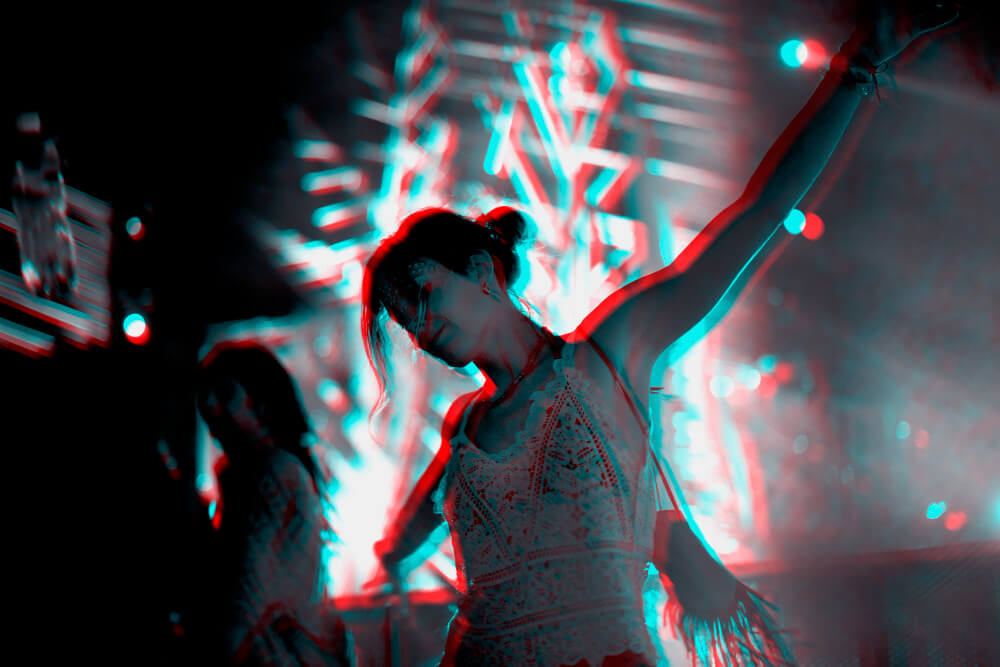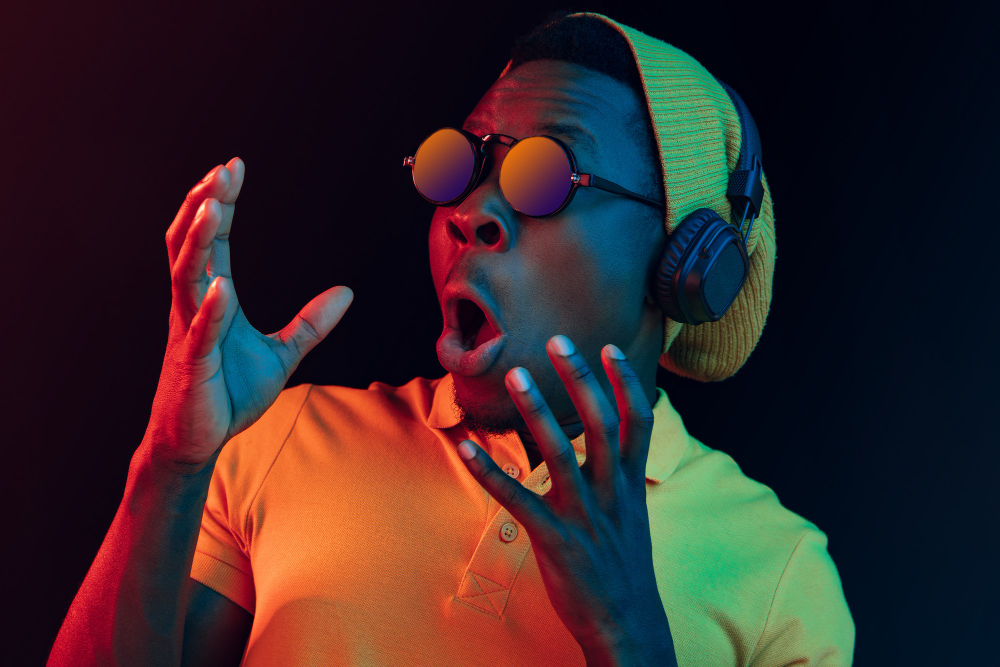In today’s digital age, the role of DJing in EDM culture has never been more prominent.

With the rise of streaming platforms and social media, DJs have the power to reach a global audience with just the click of a button.
This accessibility has opened up new opportunities for aspiring DJs to make a name for themselves in the industry.
By understanding the importance of DJing in EDM culture, individuals can gain insight into the creative processes and techniques that go into creating a memorable set.
Creating Community and Connection
One of the significant impacts of DJing in EDM culture is its ability to create a sense of community and connection among music lovers.
Through live performances and music festivals, DJs have the power to bring people together through the universal language of music.
This shared experience fosters a sense of belonging and unity, transcending borders and language barriers.
Additionally, DJs play a crucial role in shaping the sound and trends of the EDM genre, influencing the musical landscape on a global scale.
The News of EDM Culture
In the next part of this article, we will delve into the evolution of DJing in EDM culture, tracing its roots from the underground rave scene to mainstream popularity.
We will explore the innovative techniques and technologies that have revolutionized the art of DJing, from vinyl turntables to digital controllers.
By understanding the history and technical aspects of DJing, readers can gain a deeper appreciation for the skill and creativity that goes into crafting a memorable DJ set.
Stay tuned for an in-depth look at the role of DJing in shaping the ever-changing landscape of EDM culture.
The Evolution of DJing in EDM Culture
In EDM culture, the role of DJing has evolved significantly over the years.
With the rise of electronic dance music as a dominant genre in the music industry, DJs have become the central figures in the global dance music scene.
Originally, DJs were responsible for playing records and mixing tracks seamlessly to keep the energy flowing on the dance floor.
However, with advancements in technology, DJs now have the ability to create their own music, incorporating unique sounds and production techniques into their live sets.
This evolution has elevated the role of DJs to that of producers and creators, adding a new layer of complexity and artistry to EDM culture.
The Connection Between DJs and Their Audience
One of the most important aspects of DJing in EDM culture is the relationship between DJs and their audience.

A skilled DJ is able to read the crowd, understand their preferences, and curate a setlist that will keep them engaged and energized throughout the performance.
This connection is crucial for creating a memorable experience for fans and building a loyal following.
DJs who can forge a strong connection with their audience often find success in the EDM scene, as fans appreciate the effort and passion that goes into crafting a personalized and engaging set.
The Impact of DJs on the EDM Industry
DJs play a pivotal role in shaping the EDM industry and driving its growth and evolution.
Through their performances, releases, and collaborations, DJs have the power to influence trends, introduce new sounds and genres, and elevate up-and-coming artists.
Many of the biggest names in EDM started out as DJs, using their skills and creativity to make a name for themselves in the competitive industry.
As tastemakers and trendsetters, DJs have the ability to shape the direction of EDM culture and inspire a new generation of artists and fans.
The Technological Advancements in DJing
Technological advancements have revolutionized the art of DJing and transformed the way DJs interact with their music and audience.
From vinyl turntables to digital controllers and software, DJs now have a plethora of tools at their disposal to enhance their performances and push the boundaries of creativity.
Software programs like Ableton Live and Serato DJ allow DJs to manipulate and remix tracks in real-time, creating unique and dynamic sets that captivate audiences.
These technological advancements have democratized DJing, making it more accessible to aspiring artists and fueling innovation in the EDM industry.
Pros of The Role of DJing in EDM Culture
One of the major pros of DJing in EDM culture is the ability to curate and control the energy of a live event.
DJs are skilled at reading the crowd and selecting tracks that will keep the audience engaged and dancing throughout the night.
This skill can make or break a party and is essential to the overall success of an EDM event.
DJing as platform
Another benefit of DJing in EDM culture is the platform it provides for up-and-coming artists to showcase their music.
DJs often play tracks from lesser-known producers, giving them exposure to a wider audience and helping them break into the industry. This can be a valuable stepping stone for emerging talent looking to make a name for themselves in the electronic music scene.
Additionally, DJing in EDM culture allows for creative expression and experimentation.
DJs have the freedom to blend different genres, tempos, and styles to create unique and innovative sets that keep the audience on their toes.
This creative aspect of DJing adds depth and dimension to the electronic music scene, pushing boundaries and challenging traditional notions of what EDM can be.
Cons of The Role of DJing in EDM Culture
One major downside to the role of DJing in EDM culture is the saturation of the market.
With the rise of easily accessible DJ equipment and software, the barrier to entry has significantly lowered.
This has led to an oversaturation of DJs in the industry, making it difficult for talented individuals to stand out and make a name for themselves.
The lack of originality in DJ sets.
Many DJs rely heavily on pre-recorded mixes and popular tracks to please the crowd, rather than taking creative risks or showcasing their unique style. This can result in a homogenized sound and a lack of diversity in EDM culture.
Furthermore, the pressure to constantly perform and maintain a certain image can take a toll on DJs’ mental health.
The demanding schedule, late nights, and substance use can lead to burnout, addiction, and other health issues.
Profit over artistic
Lastly, the commercialization of EDM culture has led to a focus on profit over artistic integrity.
DJs are often pressured to prioritize financial success over creative freedom, leading to a loss of authenticity and passion in their music.
FAQs
How have DJs shaped the evolution of EDM culture?
DJs have played a pivotal role in shaping the evolution of EDM culture.
Through their music selection, mixing techniques, and ability to introduce new sounds, DJs have been instrumental in driving the growth and popularity of EDM globally.
They have served as tastemakers, exposing audiences to emerging artists, genres, and trends, ultimately influencing the musical preferences and styles of clubgoers.
DJs have also fostered a sense of community within the EDM scene, bringing people together through shared musical experiences.
What impact have DJs had on the global reach of EDM?
DJs have been crucial in propelling EDM onto the global stage and contributing to its widespread popularity.
They have used their platforms to showcase music diversity, incorporating various cultural influences into their sets and bridging gaps between communities.
Events like Tomorrowland and Ultra Music Festival, which feature prominent DJs, have become global phenomena, attracting audiences from around the world.
DJs have transcended borders, uniting people from different backgrounds through the universal language of music.
How do DJs establish their social standing within the EDM scene?
DJs in the EDM scene often gain social standing through their ability to curate playlists and cite tracks from other DJs.
By including tracks from respected colleagues in their sets, DJs demonstrate their musical taste and ability to remix and reinterpret existing works.
This practice of track citations serves as a form of social acknowledgment within the professional DJ community.
Additionally, DJs with high social standing often act as brokers, maintaining their distinct musical identities while incorporating influences from various genres.
What role do DJs play in creating memorable experiences at EDM events?
DJs are masters of creating immersive and engaging experiences for attendees at EDM events.
Through their skillful selection and sequencing of tracks, they can build energy, evoke emotions, and take audiences on a musical journey.
DJs have the ability to read the crowd, adapt their sets to the venue’s atmosphere, and curate a unique sonic experience that resonates with the audience.
Memorable DJ performances can leave a lasting impact on attendees, influencing future attendance and shaping the overall nightlife culture.
What techniques and skills are essential for EDM DJs?
Successful EDM DJs must possess a range of technical skills and creative abilities.
Essential techniques include beatmatching, controlling volume levels, and using effects like echo, reverb, and delays to enhance their mixes.
Creativity is crucial, as DJs need to craft innovative transitions, scratches, and remixes to captivate audiences.
Preparation and research are also vital, as DJs must have a deep understanding of which songs work well together and stay up-to-date with emerging trends.
Additionally, DJs should immerse themselves in EDM culture to connect with their audiences and represent the scene authentically.


